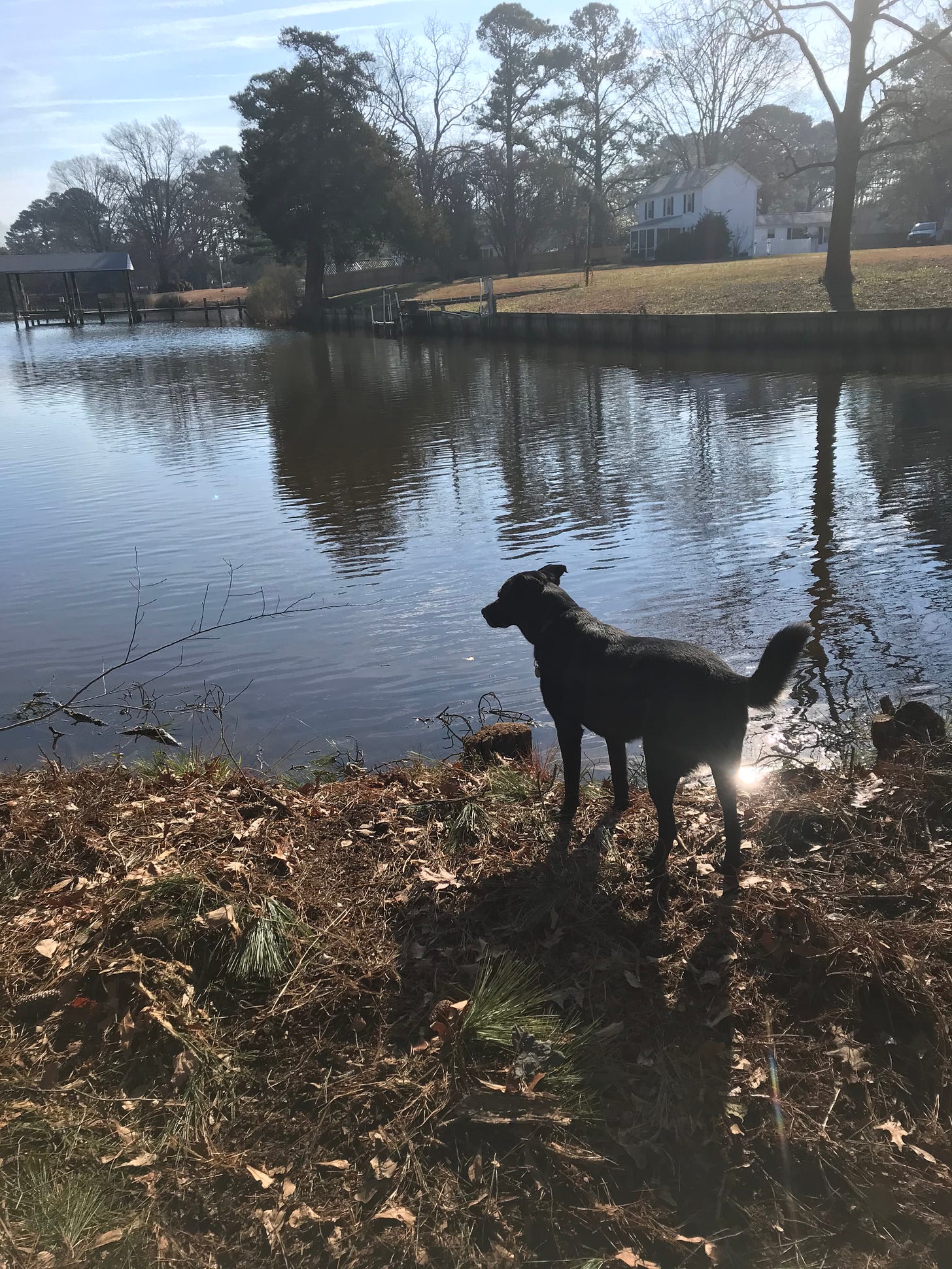I remember the day I found out. It was June 8th, 2021. I’d just hung up after my doctor gave me the news. I looked out the window and saw my husband Joe and our dog Dasher walking along the shoreline, picking up sticks.
Couldn’t we stop time?
My mind raced to all the possible outcomes of my diagnosis and potential treatment plan. I tried to think positively. I tried to feel confident. But I kept going back to the same thought.
Death.
I don’t believe anyone who ever got this kind of diagnosis didn’t think of it.
Cancer can kill you.
Telling people was the hardest thing I ever had to do. I had to choose my words carefully. I had to be prepared for lots of questions.
Of course, people who loved me were upset when I told them. They had lots of questions. They cried or got mad or, in one case, shut down altogether.
I recall not wanting to tell a soul. I tried to keep it to myself for as long as possible. In my fantasy, it wasn’t real yet. But I knew once the words were out, then there was no turning back.
What I had was rare, and the treatment was extreme, which made it even harder to explain. Most people I knew had never heard of Myelodysplastic Syndrome (MDS). And very few were familiar with what a stem cell transplant requires.
Managing other people’s feelings about what I was going through was exhausting. I knew they were scared and upset because they cared about me. So, I’d put on a brave face and assure them everything would be fine.
It felt like wearing a pair of too-tight jeans all the time. It was hard to breathe.
So, what should someone do when they get the news about a friend or family member who has cancer? I don’t know what other people would say, but here are some things which helped me:
· Listen - let the person tell you as much, or as little, as they want.
· Touch – a hug or pat goes a long way.
· Ask – What can I do to support you? Don’t bombard them with a million questions.
· Offer – to distract them with lunch, a movie or a card game. Cancer patients have too much alone time thinking scary thoughts.
· Recommend – books, movies, tv shows to help them pass the time. We often sit in treatment chairs for hours on end.
· Reach out – Cancer and treatment can be very isolating. Short texts, cards, phone calls, and FaceTime make hard days tolerable.
· Don’t forget - the caregiver. He or she is instrumental in the cancer patient’s journey. Find out how you can support them too.
As I’ve mentioned before, going through this experience has changed me. I’ve become more withdrawn. I’m uncomfortable in groups, especially if I don’t know the people well. And I get tired of discussing my disease and treatment in every conversation.
I want to shake off my cancer identity.
So why am I sharing my most private thoughts?
Because I don’t know many people who haven’t been affected by a cancer diagnosis or who know and love someone who has it. Cancer is everywhere.
It’s like a giant club no one wants to belong to.
If you’re a woman and treatment causes you to lose your hair, you’re obviously in the “Cancer Club.” Strangers walk up to you and ask what kind you have. This happened to me more than once when I was walking the dog or in the grocery store.
If you don’t have a bald head, your cancer identity may be through word of mouth. I didn't look very sick during the first eight months of my treatment. The only way people knew was if I told them. And sometimes I didn’t.
I got tired of managing other people’s feelings about this chapter in my life.
Being a member of this club isn’t everything I am. I’m still the same wife, mother, grandmother, sister, friend, artist, and writer I always was. Now that my hair’s growing back, I’m beginning to look more like myself again. Sometimes, I pretend it was all a bad dream.
While I appreciate people asking how I’m doing, I like it best when I can give a short answer and move the conversation along. I want to hear news about other people’s lives. I want to laugh when we share a memory. I want to make plans for the future. I want to hear a good dark-humored joke.
And I want to forget, even briefly, how hard it is to get through the cancer experience.




This is another great reminder! Thanks for sharing your experience.
Thank you for your vulnerability and honesty.
I know your words, thoughts, and feelings will enlighten and educate others.
You are making a difference in the lives of others.